- Home
- Regina Scott
La Petite Four Page 2
La Petite Four Read online
Page 2
Emily was once more breathless as they tumbled out into the kitchen. Everyone from the brawny footmen to the beefy cooks to the scrawny pot boy stopped and stared. Priscilla waved a regal hand. “I know we left you gifts this morning, but we simply wanted to share our best wishes and thank you again for your kind service these many years. Carry on.”
They strolled out the door to the kitchen yard and promptly collapsed into giggles.
“I wish I could do that,” Emily said. “I’d just sound rude.”
Priscilla patted her feathered bonnet back into place. “I’ve learned it’s all in how you present yourself. Now, let’s find Father.”
Good advice, but dozens of carriages lined the drive, some small and humble, others large and covered in gilt. One belonged to Lord Robert. Emily knew she could still be caught if she wasn’t careful. She was so busy looking around that she nearly collided with a tall young man in a brown coat and trousers.
He reached out an arm to steady her. “Pardon me.”
“My fault entirely,” Emily assured him. She glanced up and stared. His hair was the color of a sunset on a stormy day, red and gold and brown blending in wild disarray, and his eyes were the gray of the storm. But his smile, well, his smile was positively wicked.
As if her stare amused him, he touched two fingers to his forehead. An odd salute. Who was he? She hadn’t noticed him at the graduation ceremony. He couldn’t be anyone’s brother or cousin; she’d have heard.
“Emily!” Priscilla called ahead of her. “This way.”
“Lady Emily!” Miss Martingale called behind her. “I must have a word with you.”
She was caught! Her heart leaped into her throat, and she clutched her locket with the absurd thought that it was the only thing holding her heart in her body. As the young man eyed her locket with a frown, she knew there was nothing for it. She lifted her dark green skirts, right in front of him, and ran once more.
2
Thief!
“Finches,” Priscilla said as the carriage rolled through the greening countryside on the way to London the next day. “We could set them amidst the roses I’ve ordered and have them serenade the guests. The ball is supposed to be an enchanted garden, after all. What do you think?”
Emily was too busy looking back to answer. Was that the dust of another carriage approaching, or merely the dust they’d left behind? Was that squeal from the Tate carriage’s poorly made springs, or a voice ordering them to stop?
“Emily?” Priscilla said, a little louder.
Emily turned with a grimace. “Sorry. No finches, Pris. They’d fly into someone’s hair, or worse.”
“Oh, I suppose,” Priscilla allowed. “But perhaps stuffed finches, then. Surely someone in London makes them. After all, we want this to be the most talked about event of the Season.”
Mr. Tate, sitting across from them, managed a wan smile before turning his attention to the passing fields and hedges. Poor fellow. He couldn’t afford what Priscilla needed to secure her an advantageous marriage, but if Priscilla didn’t marry a wealthy gentleman, her father would have no money at all. Emily was glad His Grace had not put her in that position.
Of course, if he insisted on her marrying Lord Robert, that would be something else entirely. She reached for her locket, stroking the gold with her fingers.
And looked back once more. What if Lord Robert came pounding up on a black stallion and demanded her surrender? She couldn’t relax until she’d spoken to His Grace and knew her plans were safe. And she couldn’t quite attend to the plans for the wondrous ball until she’d figured out some way to show her paintings to Lady St. Gregory.
Lady St. Gregory was the president of the Royal Society for the Beaux Arts, the one trusted by the queen to enlist new members. She sculpted in marble. Ariadne had read them an account of the lady’s most recent work just a month ago.
“A triumph of movement and emotion,” The Times had said.
Surely Lady St. Gregory would see the triumph in Emily’s work, even if Miss Martingale couldn’t.
Emily wasn’t sure whether it was the heady tang of turpentine or the feathery touch of a brush that first seduced her to the arts, but she was generally happiest at an easel. She often remembered the look on her beloved art teacher’s face when Miss Alexander had seen Emily’s The Battle of Hastings. In it, William the Conqueror stood high on a hill, banner waving in the breeze, while strung out around him, as far as the eye could see, lay the bodies of fallen Saxons. It had taken Emily all term to paint. Miss Alexander had gazed at it, dark eyes wide, and said, “Oh, Lady Emily, this is very, very good.”
If only Lady St. Gregory would agree!
“I’m so glad we’re having the ball,” Priscilla said beside her, “rather than that little dinner Daphne and Ariadne’s mother has planned for them. I’ve already had two hundred acceptances of the three hundred invitations that were sent, and we still have nine days to go. Even your Lady St. Gregory accepted,” she added, as if sensing Emily’s distraction.
That was it! Emily stared at her. “Oh, Pris, now I’ve had a vision. If I exhibited a painting at the ball, Lady St. Gregory would have to recognize me!”
Priscilla’s eyes widened in obvious horror. “No, no, no. You cannot turn the ball into an art exhibition.”
“What else can I do?” Emily asked. “His Grace is too busy to help me. His aunt, who was supposed to be my chaperone, is up in Cumbria helping my sister and Cousin Charles prepare for their first baby, and who knows when the child will arrive. I’ll be lucky if I can leave the house until His Grace finds a replacement. The ball could be my only chance to gain Lady St. Gregory’s attention!”
Priscilla grit her teeth, then raised a finger. “All right, you may display one, exactly one, painting at the ball. Perhaps I can persuade the orchestra to suffer it behind them on the platform.”
That would never do. Lady St. Gregory might not even notice it. “No, Pris, if we do this, it must be up front.”
Priscilla pressed her lips together as if she were trying to keep from saying something vile. Emily couldn’t blame her for being vexed. Priscilla had inordinately high hopes for this ball. Like Emily, she might get only one chance to impress.
“Oh, as you wish,” Priscilla said with a sigh. “I’ll put it up front and surround it with a rose trellis. That should give it pride of place. But no battle scenes!”
Emily frowned. What did Priscilla expect, watercolor bowls of fruit? Not likely. Emily used oils, bold strokes, dark colors; she brought to life important subjects like the tragic deaths of heroes and glorious, blood-drenched battles. Her scenes were so real, she fancied she felt the beat of the drummer calling the march, heard the roar of canons in the distance. When she painted, she quite forgot that any other world existed.
“I’ll try for something in keeping with the theme,” she said. After all, there had been a War of the Roses, hadn’t there?
Priscilla looked skeptical, but Emily turned to look back again. That problem had been solved, but what if Lord Robert reached London before them? What if he spoke to His Grace, her father, before she did?
No, she shouldn’t worry. Ariadne had said Lord Robert’s mother was with him, so he wouldn’t rush. He’d told Miss Martingale they’d been visiting in the area and heard Emily required escort. What humbug. With His Grace just returned, she’d planned to ride home with Priscilla all along; her things had been packed and waiting for the Tate carriage.
Which simply did not travel fast enough.
Emily could not remain in her seat by the time they rolled into London the next evening, joining Priscilla in pressing her nose against the glass of the carriage window to stare at the Great City. Massive stone buildings soared into the air, blocking the darkening sky. One set was gracefully classical, another heavy and pompous, a third sprawling in all directions surrounded by ornate columns. In the crowded cobblestone squares, hawkers called for violets, penny-a-sheet newspapers, roasted nuts. Everywhere was noise, mo
vement, color. Emily’s fingers trembled, and she wished she had her sketch book.
The Emerson family town house in the Mayfair district was just as impressive, at three stories tall. She’d never been there, but she approved of the elegant sweep of stone, the bright gleam of brass on the red-lacquered door. Mr. Tate assisted her down as footmen in dark coats and breeches hurried out to bring in her trunks and boxes.
Emily couldn’t help the warmth that flooded her when she saw Warburton waiting for her. The butler had been with His Grace as long as she could remember, and his hair had been white nearly that long. When she was younger, she used to think that one day she’d grow tall enough to look him straight in his bright blue eyes. She’d long since resigned herself to the fact that that was never going to happen. No one was quite as tall as Warburton.
“Welcome home, your ladyship,” he intoned, his usual calm self in the face of the bustle around him. The footmen hurried past to fetch in the rest of her belongings. “His Grace was delayed in Whitehall, but he hopes to join you for dinner.”
She almost crumpled at his feet in relief. Dinner with her father was just the opening she needed to discuss this business of Lord Robert. Surely His Grace could be made to see reason. She would never want to disappoint him, but he knew how much she longed to join the Royal Society.
“Just see that you do not let Lord Robert Townsend near him,” she told Warburton and went upstairs to change.
It was easy to guess which bedchamber was hers down the thickly carpeted hall. She merely had to follow the footmen carrying her things. As she paused in the doorway, she found herself rather pleased. The room was done in a Oriental theme, the walls adorned in painted silk showing white and black birds with tall crowns and long tails. The mahogany woodwork was trimmed in gold, and gold highlighted the tall window, dressing room door, and the spindles and headboard of the four-poster bed. Another time she might have been tempted to stretch out, but not when His Grace would be home so soon.
She had to keep busy or she would go mad!
She was instructing one of the footmen on how to set up her easel in an unused bedchamber across the corridor when she finally heard the front door. She left the fellow to hurry downstairs. With His Grace months at the Congress of Vienna, all Emily’d had were letters. She wanted to spend time with her father, hear his stories, tell him hers. Surely a few moments of his company, on her first night in London, was not too much to ask.
But the wood-paneled study on the second floor was empty in the golden glow of candlelight, as was the stately dining room. The blue-and-gilt chairs of the withdrawing room waited expectantly. The other footmen had apparently retired to the kitchen to prepare for dinner, so she could not ask them where His Grace had gone. With a sigh, she went to check the sitting room, just in case her father might be entertaining a caller.
It was the most formal room she’d seen. Heavy red, brocaded drapes with gold-tasseled pulls covered the bow window, and red velvet chairs with clawed feet squatted before the fire’s glow. She sucked in a breath when she sighted a gentleman standing next to them, then puffed it out as he turned and she recognized him.
The young man from Barnsley stood there, his hair glowing like flames in the light of the fire. How could he have beaten her to London? And if he had, did that mean Lord Robert was here as well? “How did you get here?” she demanded.
He offered her his wicked smile. “And good evening to you as well, Lady Emily,” he said as he bowed.
Of course he knew her name. He’d obviously followed her. “Answer the question. How did you get here so quickly?”
He shrugged. “The mail coach moves quickly enough. And surely I’m not the first to seek an audience with His Grace.”
Not the first, but one of the first she’d seen kept waiting by himself. “Who let you in?” she asked suspiciously.
“A busy footman. I thought it best to keep out of the way.”
Emily gasped. “You sneaked in! Thief!” Small wonder his look had gone to her locket at Barnsley. Small wonder she hadn’t recognized him when they’d first met. She did not make a habit of associating with thieves.
“Oh, there are thieves in London, all right,” he agreed. He waved a hand to encompass the room. “You’d better watch out or you’ll lose one of these fine paintings.”
What fine paintings? His Grace owned any number of wonderful pieces from ages past, as well as some truly horrid portraits of their ancestors. She wasn’t sure which he had ordered brought to London to decorate the town house.
But as she looked around the room, she recognized each painting as hers. The Battle of Salamanca hung over the fire, The Battle of Hastings was against the far wall, and The Battle of the Nile was to her right. It had been one of her first, when she hadn’t quite mastered perspective. The British and French ships were all jumbled. He could not be much of a thief if he thought it fine art.
“What do you know of art?” she challenged.
He glanced out the open door. Then, as if satisfied that no one would approach them, he looked up to The Battle of Salamanca. She’d chosen a scene well-described in the papers. General Wellington had the French forces in the crossfire, with heavy casualties on both sides. His charger rearing, he held his saber aloft to order a charge. She’d never met the great man, but she fancied he’d be rather pleased with the piece.
“I don’t know all that much about art,” the young man before her admitted. “But I’d say this fellow never experienced war.”
Emily stiffened. “Why? What did I . . . he get wrong?”
“Oh, the details are fine enough,” he said. “I’ve known a few lads who served under Wellington on the Peninsula. This picture matches their tales, but it doesn’t show their heart.”
She frowned, moving closer. “What do you mean?”
He pointed to a fallen soldier. “Look here at this lad. He’s gone down. Very likely he’ll never see home or family again. He knows that by morning, crows will be picking at him. That’s enough to give a man cause for thought, cause for fear. Does he look as if he’s thinking about meeting his Maker?”
She had to own that he did not. While he was painted in exquisite detail, his perfect face showed no emotion whatsoever.
And was that so very bad? Not everyone had to cry!
“The purpose of the painting is not to show the individual soldier’s feelings,” she said, fingers tightening on her locket. “The purpose of the painting is to depict history.”
He shrugged again. “There are books enough for that. Why bother painting it?”
“Why bother?” Emily sputtered, hand falling. “Sir, you have no sensibilities!”
Instead of taking offense, he merely laughed. Then he paused and nodded toward the door. “I’ve picked a poor time to visit, I see. You’ll want to speak to your father. He’s just come in.”
“He has?” Emily hurried to the door and glanced out. His Grace had indeed entered the front door and was handing his top hat and walking stick to Warburton. He saw her peering out and smiled as he approached.
He was the perfect duke in her mind—not too tall, with sandy hair and knowing brown eyes. Every movement in his fine blue coat said confidence and privilege and power. Oh, but the gentleman in the sitting room was in trouble now. Emily turned with great pleasure to tell him so, only to find that he was gone, like smoke up a chimney, leaving the connecting door to the library ajar. Even as she stared in surprise, her father reached her.
“What a delightful homecoming,” he said. “Not even presented to society and already engaged to be married.”
Emily turned her stare on him, feeling as if the corridor had dipped beneath her feet. “What?”
He smiled fondly. “Lord Robert was so eager to tell me, he came to find me in Whitehall this afternoon. It seems he plans to marry immediately in Devonshire and sweep you off for a honeymoon. I am persuaded that he has grown into a fine young fellow. Congratulations, my dear. He’s exactly the sort of man your mother
and I always dreamed you’d marry.”
3
A Handsome Devil
“No, no, no!” Priscilla cried the moment she heard the news. “You cannot run away to Devonshire. I cannot have the ball without you!”
La Petite Four had assembled in the Southwell withdrawing room late the next morning, their gowns draped softly across the blue upholstery of the chairs. Warburton had brought in sweets and tea for their enjoyment, but no one seemed particularly interested in enjoying themselves.
“We must have the ball,” Ariadne was insisting, curls trembling on either side of her round face. “I’ve been practicing my witty conversation for weeks.”
“What could His Grace be thinking?” Daphne lamented. “It just isn’t done!” She pushed away the silver teapot as if she couldn’t stand the thought of drinking at such a moment.
“I quite agree,” Emily assured her. The idea still stunned her. Marriage? She’d only just graduated!
“I fail to see,” Priscilla said, green eyes narrowing dangerously, “how Lord Robert can pull together a wedding in eight days, unless you plan to elope to Scotland.”
Emily shuddered. “No, thank you. But then, I didn’t plan to get married either. How would I even find time to be fitted for a wedding gown?”
“Surely Lord Robert gave you some sign of his affections,” Ariadne said, reaching for a comfit Warburton had set out. “A lock of hair, a passionate letter.” She popped the chewy confection into her mouth as if she feared the sugar would dirty her soft pink gown.
“Not a word,” Emily said. “Though apparently His Grace had some inkling. He and Lord Robert’s brother, the new Lord Wakenoak, have been discussing marriage settlements for months. They simply weren’t sure Lord Robert wanted to settle down.”
Of course, they hadn’t asked her whether she wanted to settle down. Young ladies were supposed to desire marriage above all things. But this? Emily’d been so shocked by her father’s announcement that she’d even forgotten to ask Warburton about the mysterious gentleman in the library until this morning.

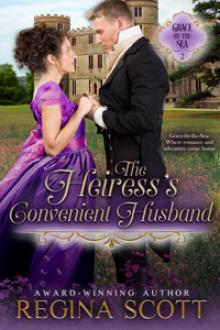 The Heiress Convenient Husband
The Heiress Convenient Husband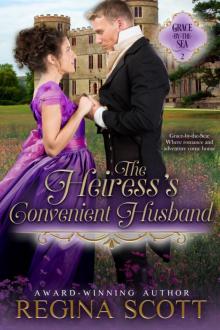 The Heiress's Convenient Husband
The Heiress's Convenient Husband A Yuletide Regency (A Timeless Romance Anthology Book 21)
A Yuletide Regency (A Timeless Romance Anthology Book 21) The Lady Emily Capers, Set One
The Lady Emily Capers, Set One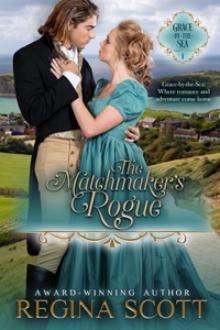 The Matchmaker's Rogue
The Matchmaker's Rogue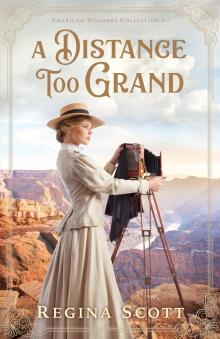 A Distance Too Grand
A Distance Too Grand Nothing Short of Wondrous
Nothing Short of Wondrous A View Most Glorious
A View Most Glorious Never Marry a Marquess
Never Marry a Marquess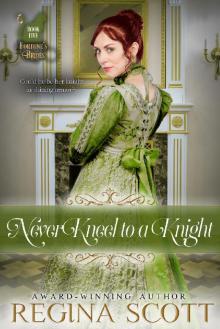 Never Kneel to a Knight
Never Kneel to a Knight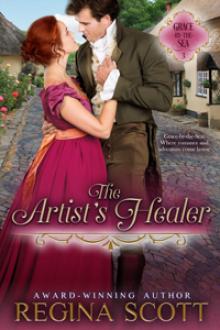 The Artist's Healer
The Artist's Healer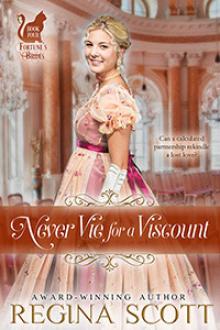 Never Vie for a Viscount
Never Vie for a Viscount Instant Frontier Family
Instant Frontier Family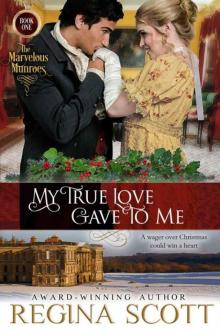 My True Love Gave to Me (The Marvelous Munroes Book 1)
My True Love Gave to Me (The Marvelous Munroes Book 1)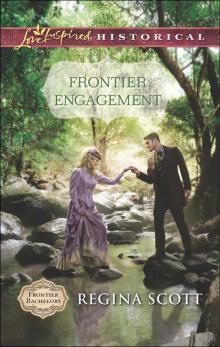 Frontier Engagement
Frontier Engagement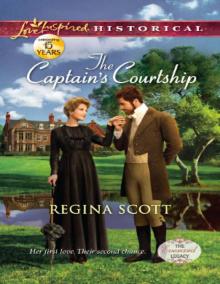 The Captain's Courtship
The Captain's Courtship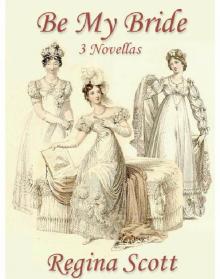 Be My Bride
Be My Bride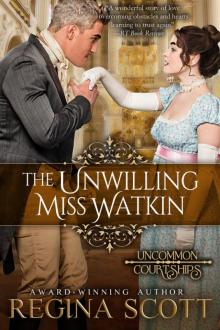 The Unwilling Miss Watkin
The Unwilling Miss Watkin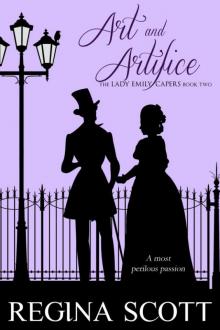 Art and Artifice
Art and Artifice The Bride's Matchmaking Triplets
The Bride's Matchmaking Triplets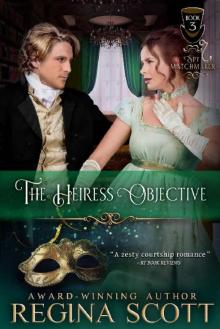 The Heiress Objective (Spy Matchmaker Book 3)
The Heiress Objective (Spy Matchmaker Book 3)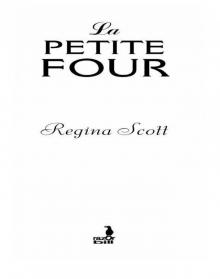 La Petite Four
La Petite Four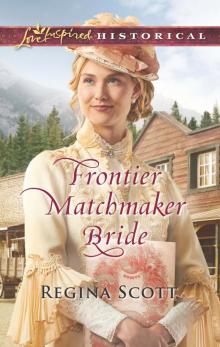 Frontier Matchmaker Bride (Frontier Bachelors)
Frontier Matchmaker Bride (Frontier Bachelors) A Convenient Christmas Wedding
A Convenient Christmas Wedding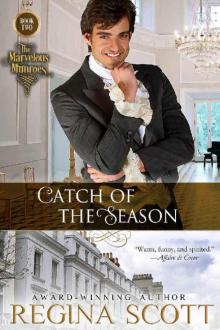 Catch of the Season (The Marvelous Munroes Book 2)
Catch of the Season (The Marvelous Munroes Book 2)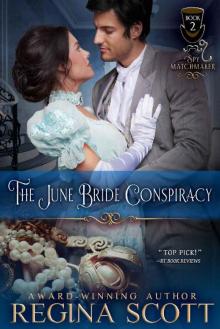 The June Bride Conspiracy (The Spy Matchmaker Book 2)
The June Bride Conspiracy (The Spy Matchmaker Book 2) The Marquis' Kiss
The Marquis' Kiss A Rancher of Convenience
A Rancher of Convenience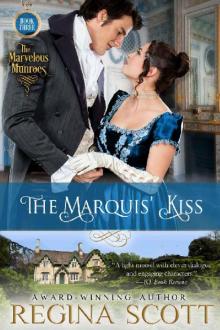 The Marquis' Kiss (The Marvelous Munroes Book 3)
The Marquis' Kiss (The Marvelous Munroes Book 3)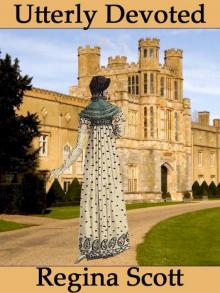 Utterly Devoted
Utterly Devoted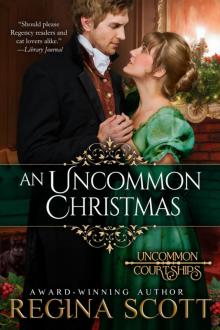 An Uncommon Christmas
An Uncommon Christmas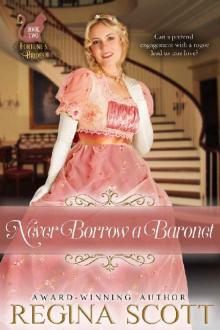 Never Borrow a Baronet
Never Borrow a Baronet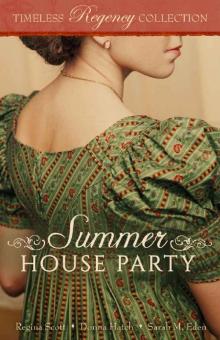 Summer House Party
Summer House Party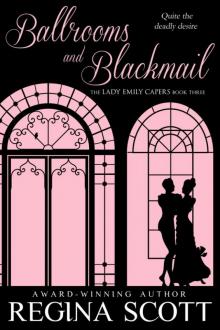 Ballrooms and Blackmail
Ballrooms and Blackmail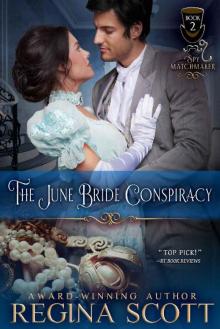 The June Bride Conspiracy
The June Bride Conspiracy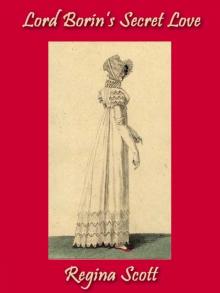 Lord Borin's Secret Love
Lord Borin's Secret Love His Frontier Christmas Family
His Frontier Christmas Family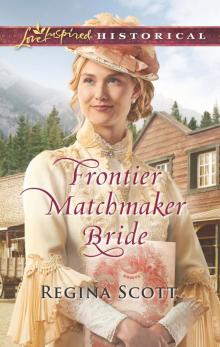 Frontier Matchmaker Bride
Frontier Matchmaker Bride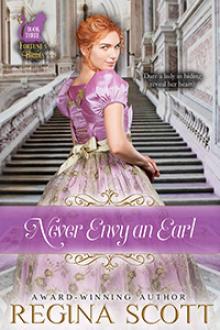 Never Envy an Earl
Never Envy an Earl My True Love Gave to Me
My True Love Gave to Me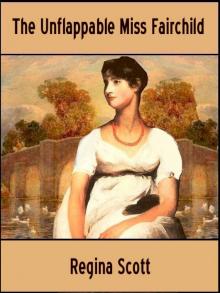 The Unflappable Miss Fairchild
The Unflappable Miss Fairchild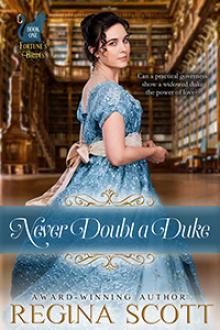 Never Doubt a Duke
Never Doubt a Duke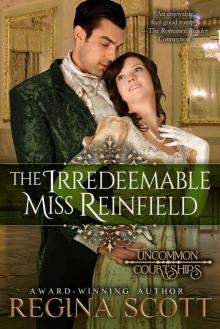 The Irredeemable Miss Renfield (Uncommon Courtships Book 3)
The Irredeemable Miss Renfield (Uncommon Courtships Book 3)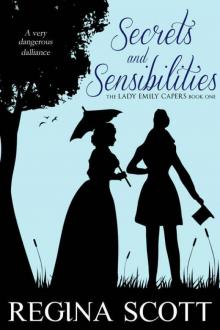 Secrets and Sensibilities: A Regency Romance Mystery (The Lady Emily Capers Book 1)
Secrets and Sensibilities: A Regency Romance Mystery (The Lady Emily Capers Book 1)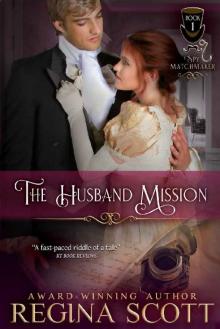 The Husband Mission (The Spy Matchmaker Book 1)
The Husband Mission (The Spy Matchmaker Book 1)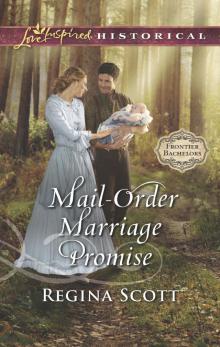 Mail-Order Marriage Promise
Mail-Order Marriage Promise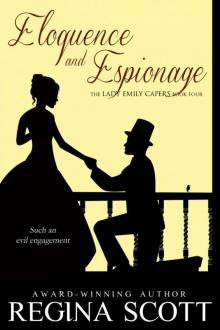 Eloquence and Espionage
Eloquence and Espionage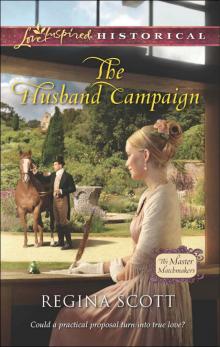 The Husband Campaign
The Husband Campaign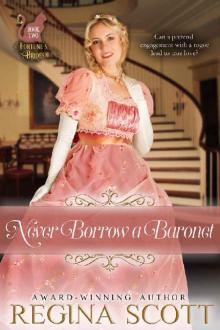 Never Borrow a Baronet (Fortune's Brides Book 2)
Never Borrow a Baronet (Fortune's Brides Book 2)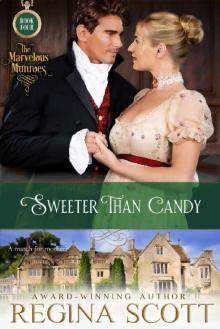 Sweeter Than Candy: A Regency Novella (The Marvelous Munroes Book 4)
Sweeter Than Candy: A Regency Novella (The Marvelous Munroes Book 4) Would-Be Wilderness Wife
Would-Be Wilderness Wife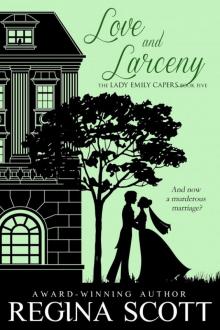 Love and Larceny
Love and Larceny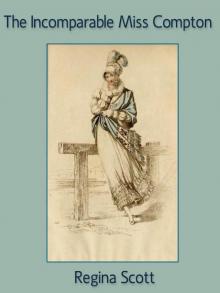 The Incomparable Miss Compton
The Incomparable Miss Compton Love Inspired Historical April 2014 Bundle: The Husband CampaignThe Preacher's Bride ClaimThe Soldier's SecretsWyoming Promises
Love Inspired Historical April 2014 Bundle: The Husband CampaignThe Preacher's Bride ClaimThe Soldier's SecretsWyoming Promises